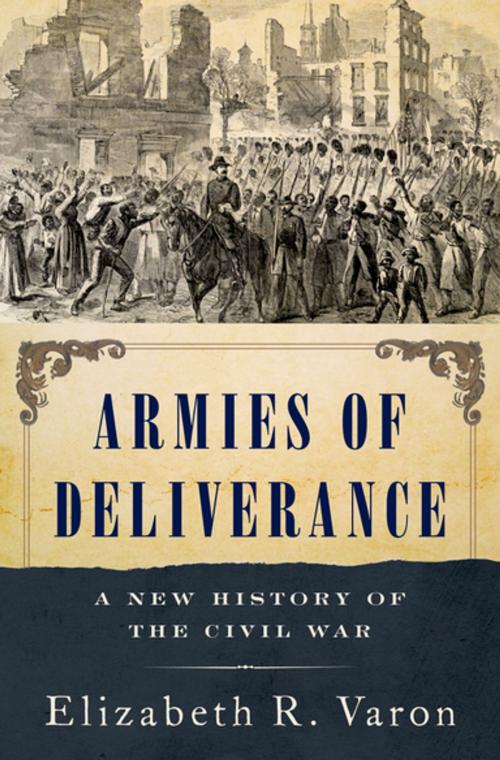Armies of Deliverance
A New History of the Civil War
Nonfiction, History, Americas, United States, Civil War Period (1850-1877)| Author: | Elizabeth R. Varon | ISBN: | 9780190860622 |
| Publisher: | Oxford University Press | Publication: | February 13, 2019 |
| Imprint: | Oxford University Press | Language: | English |
| Author: | Elizabeth R. Varon |
| ISBN: | 9780190860622 |
| Publisher: | Oxford University Press |
| Publication: | February 13, 2019 |
| Imprint: | Oxford University Press |
| Language: | English |
Loyal Americans marched off to war in 1861 not to conquer the South but to liberate it. So argues Elizabeth R. Varon in Armies of Deliverance, a sweeping narrative of the Civil War and a bold new interpretation of Union and Confederate war aims. Northerners imagined the war as a crusade to deliver the Southern masses from slaveholder domination and to bring democracy, prosperity, and education to the region. As the war escalated, Lincoln and his allies built the case that emancipation would secure military victory and benefit the North and South alike. The theme of deliverance was essential in mobilizing a Unionist coalition of Northerners and anti-Confederate Southerners. Confederates, fighting to establish an independent slaveholding republic, were determined to preempt, discredit, and silence Yankee appeals to the Southern masses. In their quest for political unity Confederates relentlessly played up two themes: Northern barbarity and Southern victimization. Casting the Union army as ruthless conquerors, Confederates argued that the emancipation of blacks was synonymous with the subjugation of the white South. Interweaving military and social history, Varon shows that everyday acts on the ground--from the flight of slaves, to protests against the draft, the plundering of civilian homes, and civilian defiance of military occupation--reverberated at the highest levels of government. Varon also offers new perspectives on major battles, illuminating how soldiers and civilians alike coped with the physical and emotional toll of the war as it grew into a massive humanitarian crisis. The Union's politics of deliverance helped it to win the war. But such appeals failed to convince Confederates to accept peace on the victor's terms, ultimately sowing the seeds of postwar discord. Armies of Deliverance offers innovative insights on the conflict for those steeped in Civil War history and novices alike.
Loyal Americans marched off to war in 1861 not to conquer the South but to liberate it. So argues Elizabeth R. Varon in Armies of Deliverance, a sweeping narrative of the Civil War and a bold new interpretation of Union and Confederate war aims. Northerners imagined the war as a crusade to deliver the Southern masses from slaveholder domination and to bring democracy, prosperity, and education to the region. As the war escalated, Lincoln and his allies built the case that emancipation would secure military victory and benefit the North and South alike. The theme of deliverance was essential in mobilizing a Unionist coalition of Northerners and anti-Confederate Southerners. Confederates, fighting to establish an independent slaveholding republic, were determined to preempt, discredit, and silence Yankee appeals to the Southern masses. In their quest for political unity Confederates relentlessly played up two themes: Northern barbarity and Southern victimization. Casting the Union army as ruthless conquerors, Confederates argued that the emancipation of blacks was synonymous with the subjugation of the white South. Interweaving military and social history, Varon shows that everyday acts on the ground--from the flight of slaves, to protests against the draft, the plundering of civilian homes, and civilian defiance of military occupation--reverberated at the highest levels of government. Varon also offers new perspectives on major battles, illuminating how soldiers and civilians alike coped with the physical and emotional toll of the war as it grew into a massive humanitarian crisis. The Union's politics of deliverance helped it to win the war. But such appeals failed to convince Confederates to accept peace on the victor's terms, ultimately sowing the seeds of postwar discord. Armies of Deliverance offers innovative insights on the conflict for those steeped in Civil War history and novices alike.















